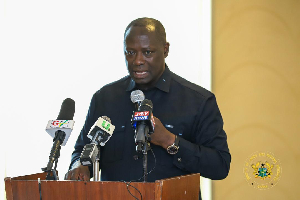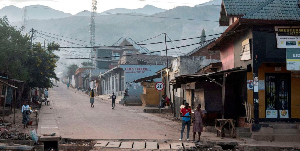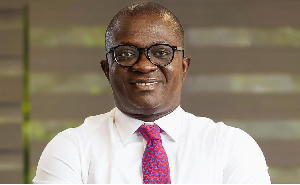The resounding defeat of the New Patriotic Party (NPP) in Ghana's 2024 elections serves as a stark reminder that political power is not a birthright, but a privilege earned and maintained through consistent engagement with the electorate. While various factors contributed to the NPP's downfall, the party's pervasive arrogance and its stubborn refusal to listen to the concerns of the citizenry stand out as primary culprits. This self-inflicted wound, cultivated over years of governance, ultimately sealed their fate.
The seeds of the NPP's downfall were sown long before the campaign trail even began. A growing sense of detachment from the everyday realities of Ghanaian citizens permeated the party's actions and rhetoric. While economic hardships mounted – soaring inflation, crippling unemployment, and a depreciating cedi – the ruling party seemed to operate in an echo chamber, insulated from the genuine struggles of the people. Instead of acknowledging the mounting discontent and actively seeking solutions, the NPP often resorted to defensive posturing and the dismissal of legitimate criticisms.
This disconnect manifested in several ways. Public forums became less about dialogue and more about orchestrated displays of power, with dissenting voices routinely silenced or marginalised. The government's responses to concerns about corruption, often substantiated by credible investigations, were perfunctory at best, failing to inspire confidence or address the root causes. The sense of impunity fostered within the party only exacerbated the situation, leading to a perception of elite indifference and a widening chasm between the rulers and the ruled.
The arrogance extended beyond mere inaction. The NPP's communication strategy, instead of emphasising empathy and responsiveness, often relied on condescending pronouncements and a dismissal of opposing viewpoints. This approach alienated crucial segments of the population, particularly the youth, who felt unheard and unseen. Social media, initially embraced as a tool for engagement, became a battleground for aggressive online warfare, further fueling the perception of the party as out of touch and dismissive.
Furthermore, the party's internal dynamics contributed to its downfall. Factionalism and infighting, often played out in public, projected an image of disunity and weakness. This internal discord undermined the party's credibility and sent a message of instability, further eroding public trust. The inability to present a united front, characterised by internal squabbling over resources and positions, contrasted sharply with the unified image presented by the opposition.
The 2024 election wasn't merely a contest of policies; it was a referendum on the NPP's governance style. The electorate's resounding rejection was not simply a shift in political allegiance, but a clear indication of a deep-seated dissatisfaction with a ruling party perceived as arrogant, unresponsive, and disconnected from the needs of the people. The humiliation of their defeat served as a brutal lesson: political power rests on the foundation of trust and genuine engagement with the citizenry. Ignoring the voices of the people, clinging to a sense of entitlement, and failing to address their legitimate concerns inevitably leads to a loss of that power.
The NPP's defeat should serve as a cautionary tale for all governing parties, a stark reminder that the arrogance of power is a self-destructive force. True leadership lies not in the assertion of dominance, but in the empathetic understanding and effective addressing of the needs and concerns of the people they serve. The 2024 Ghanaian elections demonstrate, unequivocally, that hubris ultimately has a price, and that price can be the complete loss of political power.
Opinions of Monday, 16 December 2024
Columnist: Anthony Obeng Afrane















